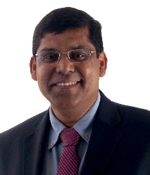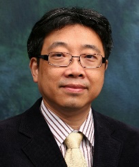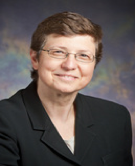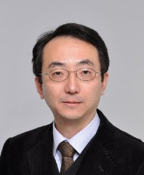
Big Data and IoT Security in Smart Computing

BITS2022 page is Here.
The 1st IEEE International Workshop on Big Data and IoT Security in Smart Computing (IEEE BITS 2017) IEEE BITS is a full-day workshop that is goig to be organized in conjunction with IEEE SMARTCOMP 2017.
Smart computing aims at improving quality of life and experience in modern society represents the next wave of computing. Key technologies contributing to the realization of smart connected communities include sensing, IoTs, mobile and pervasive computing, cyber-physical-social systems, big data, machine learning, data analytics, social and cognitive computing. Smart computing help solve a wide variety of societal challenges related to transportation, energy, healthcare, finance, disaster management, and so on. At the core of all such systems, critical issues are security, privacy, reliability, resiliency, and robustness.
The objective of this workshop is to provide a lively forum to exchange cutting-edge ideas, present results, share experience, and enhance collaborations among researchers, professionals, and application developers in various aspects of security and privacy of big data and IoT in the context of smart computing.
6th January 2017: The IEEE BITS 2017 website is online.
20th May 2017: Program and Panel are updated.
Smart computing aims at improving quality of life and experience in modern society represents the next wave of computing. Key technologies contributing to the realization of smart connected communities include sensing, IoTs, mobile and pervasive computing, cyber-physical-social systems, big data, machine learning, data analytics, social and cognitive computing. Smart computing help solve a wide variety of societal challenges related to transportation, energy, healthcare, finance, disaster management, and so on.
At the core of all such systems and applications, critical issues are security privacy, reliability, resiliency, and robustness. Indeed to boost the development of big data applications in smart computing, data security and data traceability as well as privacy are extremely important. For example, data security such as secure computation with fully homomorphic encryption and data traceability with both proof of storage and attribute-based encryption become indispensable.
The objective of this workshop is to provide a lively forum to exchange cutting-edge ideas, present results, share experience, and enhance collaborations among researchers, professionals, and application developers in various aspects of security and privacy of big data and IoT in the context of smart computing.
Paper submissions should be no longer than 6 pages (including references) and formatted according to the IEEE conference template. Papers must be submitted electronically as PDF files through EasyChair by selecting BITS2017 track.
All submitted papers will be subject to peer reviews by Technical Program Committee members and other experts in the field. All presented papers will be published in the SmartComp2017 conference proceedings and submitted to the IEEE Xplore Digital Library. All accepted papers will be EI indexed.
| 08:15- | Registration |
| 09:00-09:05 | Opening Remarks (Sajal K. Das and Hayato Yamana) |
| 09:05-10:30 |
Session 1: Cryptography and Authentication in Theory Session Chair: Jun Sakuma - A homomorphic signature scheme for quadratic polynomials Seiko Arita and Shunji Kozaki - Short CCA-Secure Ciphertext-Policy Attribute-Based Encryption Hiroaki Anada and Seiko Arita - Anonymous Authentication Scheme with Decentralized Multi-authorities Hiroaki Anada and Seiko Arita: |
| 10:30-11:00 | Break |
| 11:00-12:30 |
Session 2: Applied Secure Systems in Smart Computing Session Chair: Hayato Yamana - Differentially Private Semi-supervised Classification Long Xu and Jun Sakuma - Anomaly Detection based on Attribute Conflict Identifications in largescale commercial Bank Customer Data Yuan Wang and Vincent Ng - Fully Homomorphic Encryption for Classification in Machine Learning Seiko Arita and Shota Nakasato |
| 12:30-14:30 | Lunch |
| 14:30-15:30 |
Session 3: Big Data Security in Smart Computing Session Chair: Dario Bruneo - Private Substring Search on Homomorphically Encrypted Data Yu Ishimaki, Hiroki Imabayashi and Hayato Yamana - A Decentralized System of Genome Secret Search Implemented with Fully Homomorphic Encryption Yuri Yamamoto and Masato Oguchi |
| 15:30-16:00 | Break |
| 16:00-17:30 |
PANEL: CPS Safety and Security (jointly with SmartSys 2017) Moderator: Sajal K. Das Panelists: Dario Bruneo, Jiannong Cao, Abhishek Dubey, Klara Nahrstedt, Hayato Yamana |
Moderator:
|
Sajal K. Das, Missouri University of Science and Technology, USA |
|---|---|
| Sajal K. Das is Chair of Computer Science and Daniel St. Clair Endowed Chair at Missouri University of Science and Technology. He served the NSF during 2008- 2011 as a Program Director in Computer Networks and Systems division. His research interests include wireless sensor networks, mobile and pervasive computing, cyber-physical systems and smart environments, security, big data, IoT, distributed and cloud computing, and social networks. Dr. Das has published extensively in these areas (600+ papers, 4 books, 5 US patents) and has funded NSF projects on cyber-physical security. His h-index is 75 with more than 24,500 citations. He is a recipient of 10 best paper awards and IEEE Computer Society’s Technical Achievement Award for pioneering contributions to sensor networks and mobile computing. He serves as the founding Editor-in-Chief of Elsevier’s Pervasive and Mobile Computing journal, and Associate Editor of several journals including IEEE Transactions on Mobile Computing and ACM Transactions on Sensor Networks. He is (co-)founder of IEEE SMARTCOMP, IEEE PerCom and IEEE WoWMoM conferences. Dr. Das is an IEEE Fellow. | |
Panelists:
|
Jiannong Cao, Hong Kong Polytechnic University |
| Jiannong Cao is currently a chair professor and head of the Department of Computing at Hong Kong Polytechnic University. His research interests include parallel and distributed computing, wireless networks and mobile computing, big data and cloud computing, pervasive computing, and fault tolerant computing. He has co-authored 5 books, co-edited 9 books, and published over 500 papers in major international journals and conference proceedings. Dr. Cao is a fellow of the IEEE, a senior member of China Computer Federation, and a member of ACM. He was the Chair of the Technical Committee on Distributed Computing of IEEE Computer Society during 2012-2014. He has served as associate editor of many journals, including ACM Transactions on Sensor Networks, IEEE Transactions on Cloud Computing, IEEE Transactions on Computers, IEEE Transactions on Parallel and Distributed Systems, IEEE Networks, and Pervasive and Mobile Computing. He is a (co-)founder of IEEE SMARTCOMP and served on organizing/program committees for many international conferences. | |

|
Klara Nahrstedt, University of Illinois at Urbana-Champaign, USA |
| Klara Nahrstedt is a Ralph and Catherine Fisher Professor in Computer Science, and Director of Coordinated Science Laboratory at the University of Illinois at Urbana- Champaign. Her research interests include multimedia systems, tele-immersive systems, trusted cyber-physical systems, QoS management in wired and wireless networks, and distributed, and pervasive mobile systems. She is the recipient of the University Scholar Award, the Humboldt Research Award, IEEE Computer Society Technical Achievement Award and ACM SIGMM Technical Achievement Award, IEEE Fellow and ACM Fellow. She is the member of the German Academy of Sciences (Leopoldina Society). She was the editor-in- chief of ACM/Springer Multimedia Systems Journal; general co-chair of ACM Multimedia, ACM NOSSDAV and IEEE PerCom; chair of ACM Special Interest Group in Multimedia (2007-2013); associate editor of ACM Transactions on Multimedia and IEEE Transactions on Multimedia. She is a member of Computing Community Consortium (CCC) from 2014-2017, a subcommittee of CRA, and member of the Illinois Governor’s Technology Advisory Board, subcommittee on data (2016). | |

|
Hayato Yamana, Waseda University, Japan |
| Hayato YAMANA received his Dr. Eng. degree at Waseda University in 1993. He began his career at the Electrotechnical Laboratory (ETL) of the former Ministry of International Trade and Industry (MITI), and was seconded to MITI's Machinery and Information Industries Bureau for a year in 1996. He was subsequently appointed as Associate Professor of Computer Science at Waseda University in 2000, and has been a professor since 2005. From 2003 to 2004, he was the chair of IEEE Computer Society Japan Chapter. From 2015 to 2017, he is director of IPSJ (Information Processing Society of Japan) and vice chairman of information and communication society of IEICE (the institute of electronics, information and communication engineers). At Waseda University, he has been deputy Chief Information Officer and WasedaX project director since 2015. His research area is big data analysis. Currently, his group engages in Japanese government funded project called “Secure Data Sharing and Distribution Platform for Integrated Big Data Utilization - Handling all data with encryption.” For more information, please refer to http://www.yama.info.waseda.ac.jp/crest/ | |

|
Dario Bruneo, University of Messina, Italy |
| Dario Bruneo is an Associate Professor of Computer Engineering at the University of Messina, Italy. The research activity of Dario Bruneo has been focused on the study of distributed systems with particular regards to the management of advanced service provisioning, to the system modeling and performance evaluation. His current research topics include Cyber Physical Systems, Internet of Things (and its application in Smart City scenarios), monitoring and evaluation of Cloud computing systems, performance and reliability of complex systems. He has published over 100 papers in international journal and conferences and he is co-editor of the book "Quantitative Assessments of Distributed Systems - Methodologies and Techniques" - Scrivener/Wiley. He has been involved in several European projects and he is local coordinator of the "Embedded Systems & Smart Manufacturing" CINI national Lab. He is co-founder of the startup SmartMe.io, a University spin-off that develops innovative IoT solutions for smart environments. | |

|
Abhishek Dubey, Vanderbilt University, USA |
| Abhishek Dubey is an Assistant Professor of Electrical Engineering and Computer Science at Vanderbilt University, Senior Research Scientist at the Institute for Software-Integrated Systems and co-lead for the Vanderbilt Initiative for Smart Cities Operations and Research (VISOR). He has over 15 years of experience in the area of distributed systems engineering. His research interests including analysis, design and integration, and runtime management of geographically dispersed cyber-physical application platforms. He is a senior member of the IEEE and has published over 100 peer-reviewed articles. Abhishek received his PhD (2009) and MS (2005) degrees in Electrical Engineering from Vanderbilt University. He currently manages a number of projects in this area, such as Integration Platform for Human Cyber-Physical Systems in Smart Cities, Social Computing Platform for Multi- Modal Transit, Integrated Safety Incident Forecasting, and Analysis, and Resilient Information Architecture Platform for Smart Systems. His research is directed through SCOPE lab at Vanderbilt University (scope.isis.vanderbilt.edu). | |